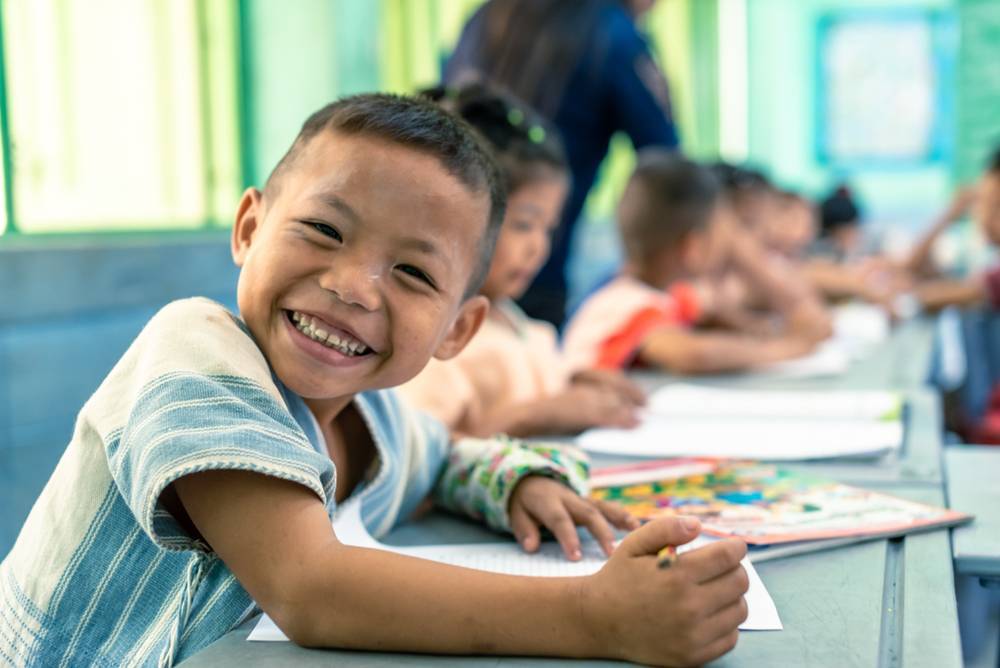Medical Channel Asia presents the weekly Asian medical news bulletin, bringing you essential healthcare news from across the region. This week’s bulletin covers monkeypox in Indonesia, mental health in Malaysia and air pollution in Thailand.
Malaysia
In response to the rising cases of mental health issues among children and teenagers, Health Minister Dr Zaliha Mustafa announced the development of a targeted mental health action plan. This initiative is driven by concerns over future societal implications and the current trend of increasing mental health cases post-COVID-19. It seeks to enhance mental health awareness and prevent extreme outcomes such as suicide. The plan includes digital innovations like the MyMinda module within the MySejahtera app. They offer self-assessment tools, educational resources, and access to support services. Additionally, new training modules focusing on suicide prevention and comprehensive mental health services have been introduced. They aim to equip various healthcare professionals nationwide with the necessary skills and knowledge to respond effectively to these concerns.
Also reported this week:
ICYMI: Invest Selangor’s Selangor International Expo MEDIC 2023
Malaysia’s First Women’s Health Clinic Launched at National Sports Medical Center (NSMC)
Stroke Recovery Programme : University Malaya Medical Center (UMMC) Wants To Treat More Patients
Philippines
President Ferdinand Marcos Jr. of the Philippines has endorsed forming a Universal Health Care Coordinating Council, a critical move in bolstering the nationwide execution of the Universal Health Care (UHC) Act. Spearheaded by the Department of Health (DOH) and supported by various governmental departments, the council aims to tackle the health system’s fragmentation. It will establish comprehensive governance, unify local health systems under provincial health boards, and closely monitor the utilisation of the UHC special health fund. Initial integration efforts are scheduled in five pilot regions, marking a significant step towards streamlined, equitable health services nationwide.
Also reported this week:
DOH and WHO Launch Five-year Plan for Mental Health Services in the Philippines
First Halal Kitchen Certification Awarded to Manila Doctors Hospital
Human Papillomavirus Vaccine: Cervical Cancer Free Filipinas
Philippines to have super health centers in poor areas for accessible health services
Singapore
Singapore faces a significant shortage of critical healthcare professionals, including radiographers, pharmacists, and nurses, after the COVID-19 pandemic. This issue, intensified by an ageing population, technological advancements, and healthcare infrastructure expansion, is particularly acute in private hospitals.
Institutions like IHH Healthcare are seeking talent overseas, focusing on countries recognised by Singapore’s Health Ministry. Educational programs, like those at the Singapore Institute of Technology, are working to meet demand. However, the industry still needs to grapple with retaining staff due to heavy workloads and a lack of understanding and respect for these roles. As more healthcare facilities arise, the urgency to fill these positions grows, prompting strategies for staff retention and international recruitment.
Also reported this week:
GigXR and NUS Medicine Launch Innovative Gastrointestinal Training Module
Thailand
Officials are vowing to tackle a premature surge in air pollution, attributing it to factors like atmospheric conditions and agricultural burning.
The capital, Bangkok, faced severe pollution levels, ranking as the world’s 10th-most polluted city. Activists from groups like Greenpeace Thailand and Ecological Alert and Recovery-Thailand urge the government to acknowledge and address industrial emissions’ significant role, which they believe is underestimated in official reports. They advocate for policies requiring factories to disclose emission data, emphasising a comprehensive approach to combat the seasonal pollution crisis effectively.
Also reported this week:
Chiang Mai Hospital Merges Cath Lab and Cardiac MRI For Better Emergency Care
Indonesia
The Indonesian Health Ministry has heightened vigilance as cases of monkeypox, a serious, potentially fatal infectious disease, have seen an unusual increase in Jakarta, with six confirmed instances emerging since mid-October. This uptick, concentrated among men aged 25 to 35, marks a significant rise from the single case recorded in 2022.
The health authorities and epidemiologists emphasise rigorous contact tracing to contain the spread, especially given the disease’s prior classification as a Public Health Emergency of International Concern (PHEIC) by the World Health Organization. While the emergency status was revoked earlier this year due to a decline in global cases, the recent surge has prompted renewed concern and proactive measures from Indonesian health officials.
Also reported this week:
Vietnam
The Vietnamese health authorities have officially downgraded COVID-19 from a Class A to a Class B infectious disease, acknowledging its reduced transmission rate and mortality in 2023 compared to the previous year. Additionally, this reclassification is informed by substantial data and aligned with existing health regulations. It also signifies a shift in how the disease is managed, including discontinuing daily case reports and state-covered treatment costs. While life has returned mainly to pre-pandemic conditions, health officials emphasise continued vigilance due to ongoing viral mutations, advising the persistent use of masks, especially in healthcare settings and crowded places. Additionally, COVID-19’s integration into the existing health monitoring system requires regular risk assessments for proactive response measures.

